There’s no doubt that turmeric is one of the most highly prized spices in the world. Belonging to the ginger family, it has been used for thousands of years in India. By 1280, Marco Polo happened upon it, describing it as very similar to saffron.
Ancient medicinal uses for turmeric include treating eye infections and dressing wounds, burns and bites. It’s even used for treating internal conditions, such as digestive and respiratory ailments. Other industries, such as cosmetics and fabrics, found uses for turmeric as well.
The name “turmeric” is derived from the Latin phrase “terra merita,” which means “meritorious earth.” Interestingly, the Sanskrit language alone has at least 53 words for turmeric as well.
Health Benefits of Turmeric
Turmeric is loaded with essential minerals, including magnesium, potassium and calcium. It’s also an excellent source of fiber and zinc, as well as vitamin C.
While it’s improbable that someone would ingest an entire ounce of turmeric in one sitting (although it would be completely safe), the nutritional aspects listed above can be easily obtained in this amount as opposed to a teaspoon, which accounts for almost nothing. A more reasonable serving is about 1 tablespoon, which communicates excellent phytonutrients.
Research has shown that turmeric may help manage irritable bowel syndrome, and improve skin conditions such as atopic dermatitis and psoriasis. More reported health benefits of turmeric include relief from joint pain, which results in reduced joint swelling and greater range of motion.
Turmeric has been used as a powerful anti-inflammatory in Chinese and Indian medicine for millennia. Curcumin, the primary pharmacological agent in this spice, exhibited proven effects in this area that comparable to over-the-counter anti-inflammatory agents as well as some prescription medications. The safety of curcumin has been well-established as well. Reported side effects are minor and do not outweigh the potential it possesses.
Research suggests that turmeric may also be helpful in lowering cholesterol levels, supporting cardiovascular health, relieving indigestion, improving liver function and even reducing your risk of Alzheimer’s disease. Other possible benefits include the lowered risk of cancer and inhibited cancer cell growth — specifically cancer of the breast, colon, prostate, lung and childhood leukemia. You may refer to the table below to see what other nutrients turmeric has to offer:
| Turmeric Nutrition Facts
Serving Size: 1 tablespoon (9.4 grams), ground |
||
| Amt. Per Serving |
||
| Calories | 29 | |
| Total Fat | 0.30 g | |
| Saturated Fat | 0.17 g | |
| Trans Fat | 0.005 g | |
| Cholesterol | 0 mg | |
| Sodium | 2.54 mg | |
| Total Carbohydrates | 6.31 g | |
| Dietary Fiber | 2.13 g | |
| Sugar | 0.30 g | |
| Protein | 0.91 g | |
| Vitamin A0.416 mg | Vitamin C | 0.066 mg |
| Calcium15.8 mg | Iron | 5.17 mg |
Studies Done on Turmeric
One study noted that curcumin has several therapeutic effects, one being the inhibition of cancer cell proliferation. Curcumin was studied against triple-negative breast cancer (TNBC), which scientists noted has a poor prognosis. Researchers concluded that curcumin may help inhibit the proliferation of TNBC cells, possibly due to a change in the signaling pathway of the cancer’s underlying molecular mechanism.
Turmeric extracts were also tested and found to have skin-improving properties. In one study, extracts were used on ultraviolet radiation-damaged skin for six weeks. Scientists reported improvements in skin hydration and sebum content, along with possibilities that similar creams could be used in future photoprotective formulations.
In another study, an ethanol extract of turmeric and curcumin ointment was found to produce significant pain relief in patients with external cancerous lesions.
Turmeric Fun Facts
Traditionally called “Indian saffron” because of its deep yellow color, turmeric has also been used throughout history as textile dye and as a cosmetic ingredient.
Summary
This bright yellow spice, traditionally used as food and medicine, contains potent antioxidants and benefits that studies have shown may help lower the risk for diabetes, cancer and heart disease.
To get the most of what turmeric has to offer, use it to enhance many of the dishes on your table, such as fish (or any meat for that matter). Turmeric can also add delicious complexity to mashed dishes like potatoes or cauliflower, sautés with onions, broccoli, carrots or bell peppers, and can be used as a base for creamy vegetable dips, sauces and egg salad.
Be sure to choose full, organic turmeric rather than a curry blend, which has a negligible amount of healthy components.

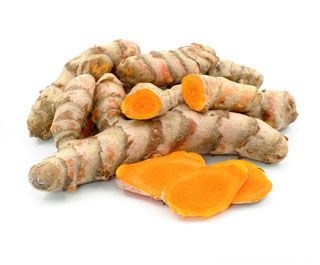
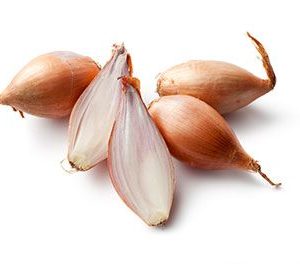
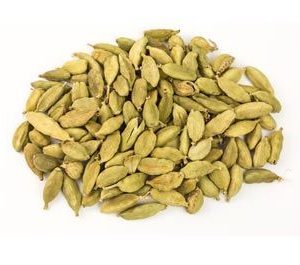
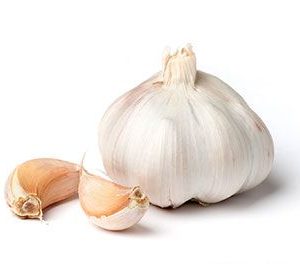
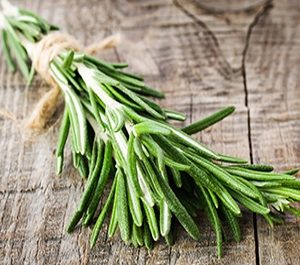
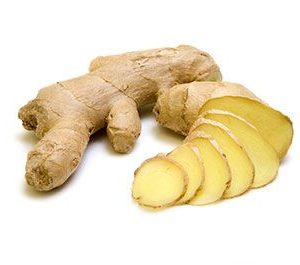
Reviews
There are no reviews yet.